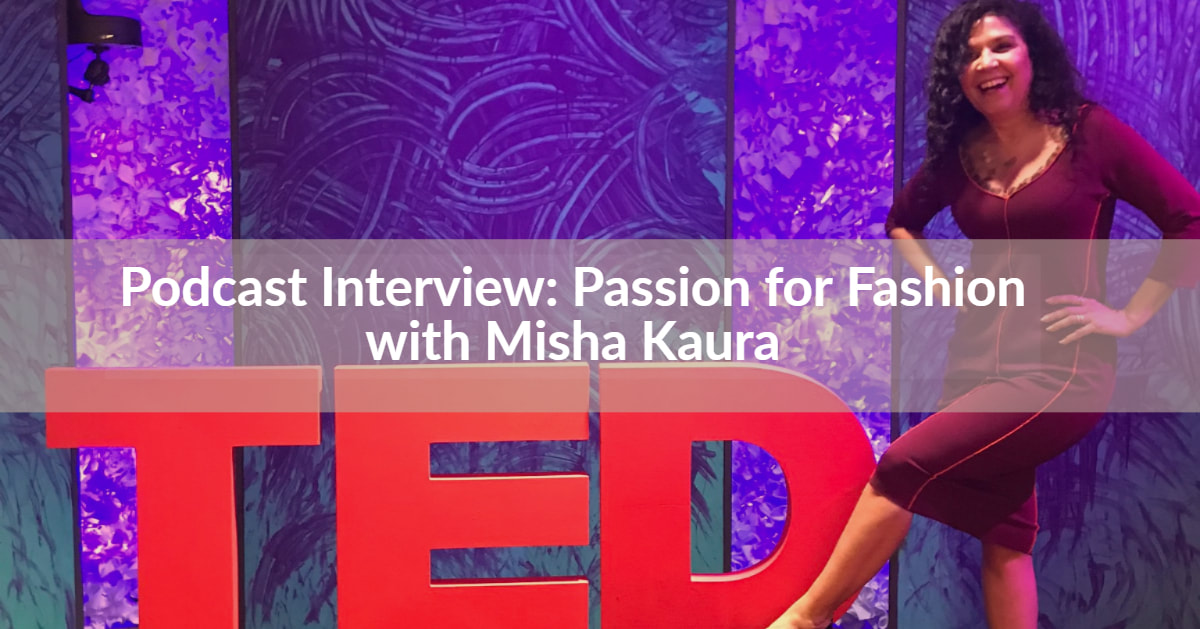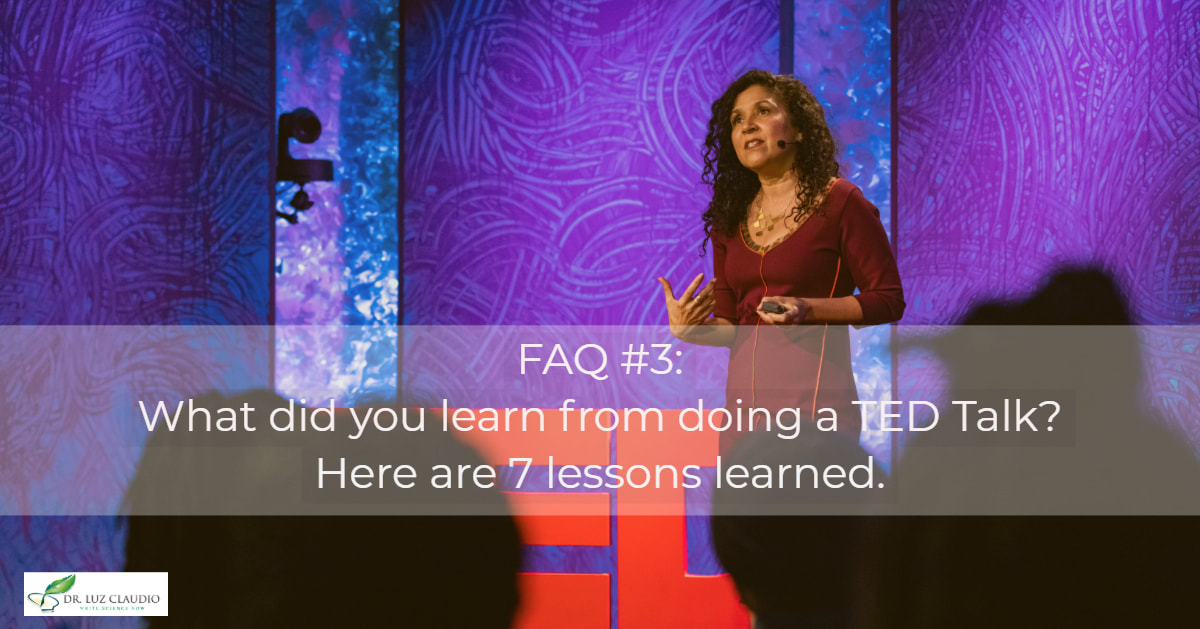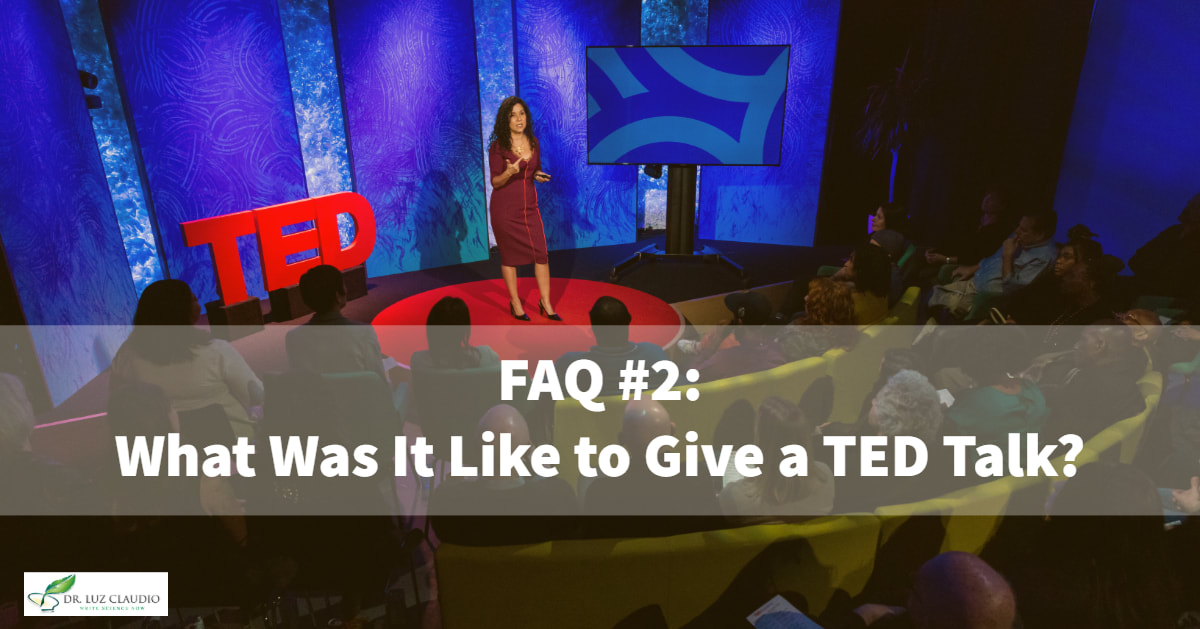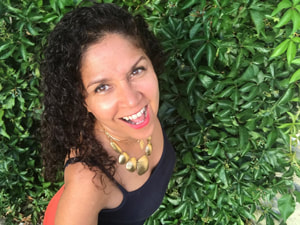|
“What?! You want to interview me for a podcast about fashion?” I said on the phone, incredulously.
I continued, “Before I say you are crazy, maybe what you mean is that you want me to talk about the environmental impact of the fashion industry?” (This is something that I have written about in one of my most popular research papers, so that would make total sense.) “No,” said Misha Kaura, the fashion designer, and podcaster who was calling me on the phone. “I want to interview you about the role of fashion in your professional life.” Until that moment, I had not consciously thought that fashion played much of a role in my career. Sure, I like to look nice and presentable, but that is a long leap from being fashiony. Misha’s invitation made me think. Hmm… I guess fashion does play quite a role in my professional life. I did mention in my TED Talk that when I present about environmental health to girls, they also ask me about my clothes, shoes, or hair. This can get annoying, until you think about it from their perspective. I don't fit the media image of a scientist, so the girls are curious. For the podcast, Misha asked me to talk about my career path and when fashion entered my consciousness. So I had to recall that my biggest role models were my aunts. You see, I grew up in the mountainous countryside on the island of Puerto Rico. My aunts were all professional women, 6 of them were secretaries. That they had these glamorous jobs was pretty rare at that time. And I wanted to grow up to look like them. I remember that my aunts would walk down our unpaved road with their work shoes in hand. When they got to the bottom of the mountain where the paved road started, they would wash their feet and put their heels on to go to work in the nice offices in the city. To me, that was what a professional woman did. Now that I am an environmental health scientist, some people have the idea that I work with trees and forests and wildlife. But in fact, I work in an office and lab in a big hospital in Manhattan. Passion for fashion is important to me because many people think that a woman scientist doesn't really care about fashion. Why would we, right? We tend to wear lab coats and anyway, a woman who is brainy can’t possibly care much about her appearance. That's if you believe the media. For me, the concept of fashion is aspirational and also inspirational. Aspirational because being a non-traditional female underrepresented minority scientist, I needed to break those stereotypes to be taken seriously. Therefore, I started dressing more like who I wanted to be, a professional. Like my aunts. Carrying my high heel shoes in my hand until I get to the paved road. Literally and figuratively. Inspirational because, as I said in my TED Talk, when I talk to my students, especially young women and girls, it's really important to them to see somebody they would want to emulate. Now that I have a 12-year-old daughter I see more clearly how important this is to them. I want to say to girls and young women: "you can dress and look anyway you want and still be a kick-ass scientist. If you don’t fit the stereotypes, so be it." I personally don’t have a lot of clothes, but what I do have I like. Last year, I joined the No New Clothes for a Year pledge. I made the year, buying only a pair of walking shoes and underwear, but cheated by having my friend, Martina Dietrich make me a dress for my TED Talk. I got the jewelry from my friend Jane Diaz. So in the podcast I said that fashion style is not about having a ton of clothes or being trendy. It comes with getting to know yourself and being able to reflect that knowledge in your own style. Style comes from being able to wear clothes that make you feel in control, whether those clothes are the kind you see on the runways or the byways. Yes, being a woman scientist has the advantage of forcing people to see your brain power rather than only being measured by superficialities. That must allow for all styles to be represented. Once I was wearing a classic Diane Von Furstenberg wrap dress at work, when a colleague sarcastically asked me "are you coming to the seminar or to a cocktail party". In fact, I was going to both! Fashion style is about wearing and looking like who we are and who we want to be. Listen to the podcast here: https://passionforfashionwithmishakaura.simplecast.com/episodes/misha-kaura-interviews-dr-luz-claudio-ArYr0Fco
0 Comments
Since graduate programs are very focused on a specific subject, they are best for students who are pretty certain of what discipline interests them most.
For an article published in US News and World Report, Ilana Kowarski asked several experts in higher education to explain what is graduate school. Students must weigh the decision to pursue graduate education very carefully and this article is intended to help in that regard. One common misconception about graduate school is that it is similar to college, but higher education experts say that graduate courses tend to involve more self-directed learning than courses at the undergraduate level. "Too often, college students or people who only have had a college experience somehow think that graduate school is going to be more of the same, and it's not," says Thomas Plante, a professor of psychology at Santa Clara University in California. "It's going to look very different. So students might be tired of sitting in small plastic seats in large lecture halls and listening to professors drone on and then taking tests and things like that, and they don't realize that often graduate school is not that way at all." Plante says graduate courses tend to involve small classes as opposed to large lectures, and he notes that grad students are typically engaged in academic research outside of the classroom. In addition to Dr. Plante's comment, I was quoted as follows: "Luz Claudio, a tenured professor with the Icahn School of Medicine at Mount Sinai in New York, says graduate school typically requires an abundance of motivation and personal accountability, since students are frequently asked to work independently. "I tell college students that one of the keys to success in graduate school is self-discipline," Claudio wrote in an email. "There's generally no 'homework,' quizzes and few exams. Students need to learn how to learn class materials without such close guidance from a teacher. However, most graduate programs have a long-term project that students must complete, such as a research paper. These require a different kind of relationship with a teacher. For these, the teacher becomes more like a mentor and the student is more like an apprentice." To read more, go to US News & World Report. Do you have a friend who once did a frog dissection and now acts as if they were a surgeon? Well, I don't want to be like that friend.
I have done one TED Talk. Therefore, I am no expert. I am still learning and exploring how I can incorporate that experience into other parts of my professional life. But since this is what you asked in the FAQs, then I will tell you the things I learned that helped me. Hope that they may help you next time you have to give a scary talk:
You know that warm and fuzzy feeling that you get when walking on a lovely beach at sunset?
Giving a TED Talk was NOT like that. Giving a TED Talk was more like riding a roller coaster, when you are not a roller-coaster- type-of-person. It was the longest 6:54 minutes of my life. I felt every emotion: fear, excitement, despair, focus, distraction, nausea... then, just like riding a roller coaster, as soon as it was over, I wanted to do it all again. To answer your second most frequently asked question (FAQ), here are some of the salient points of this experience:
|
This section will not be visible in live published website. Below are your current settings: Current Number Of Columns are = 1 Expand Posts Area = 1 Gap/Space Between Posts = 8px Blog Post Style = card Use of custom card colors instead of default colors = 1 Blog Post Card Background Color = current color Blog Post Card Shadow Color = current color Blog Post Card Border Color = current color Publish the website and visit your blog page to see the results AuthorDr. Luz Claudio is an environmental health scientist, mother and consultant, originally from Puerto Rico. She is a tenured professor of environmental medicine and public health. Luz recently published her first book: How to Write and Publish a Scientific Paper: The Step-by-Step Guide. Dr. Claudio has internship programs and resources for young scientists. Opinions expressed in this blog are solely her own and may not reflect her employer's views. Categories
All
|
|
Dr. Luz Claudio
[email protected] |
|
Opinions expressed in this website are solely Dr. Luz Claudio's own and may not reflect her employer's views. None of the information on this website should be taken as medical advice.
© COPYRIGHT 2018. ALL RIGHTS RESERVED.






 RSS Feed
RSS Feed